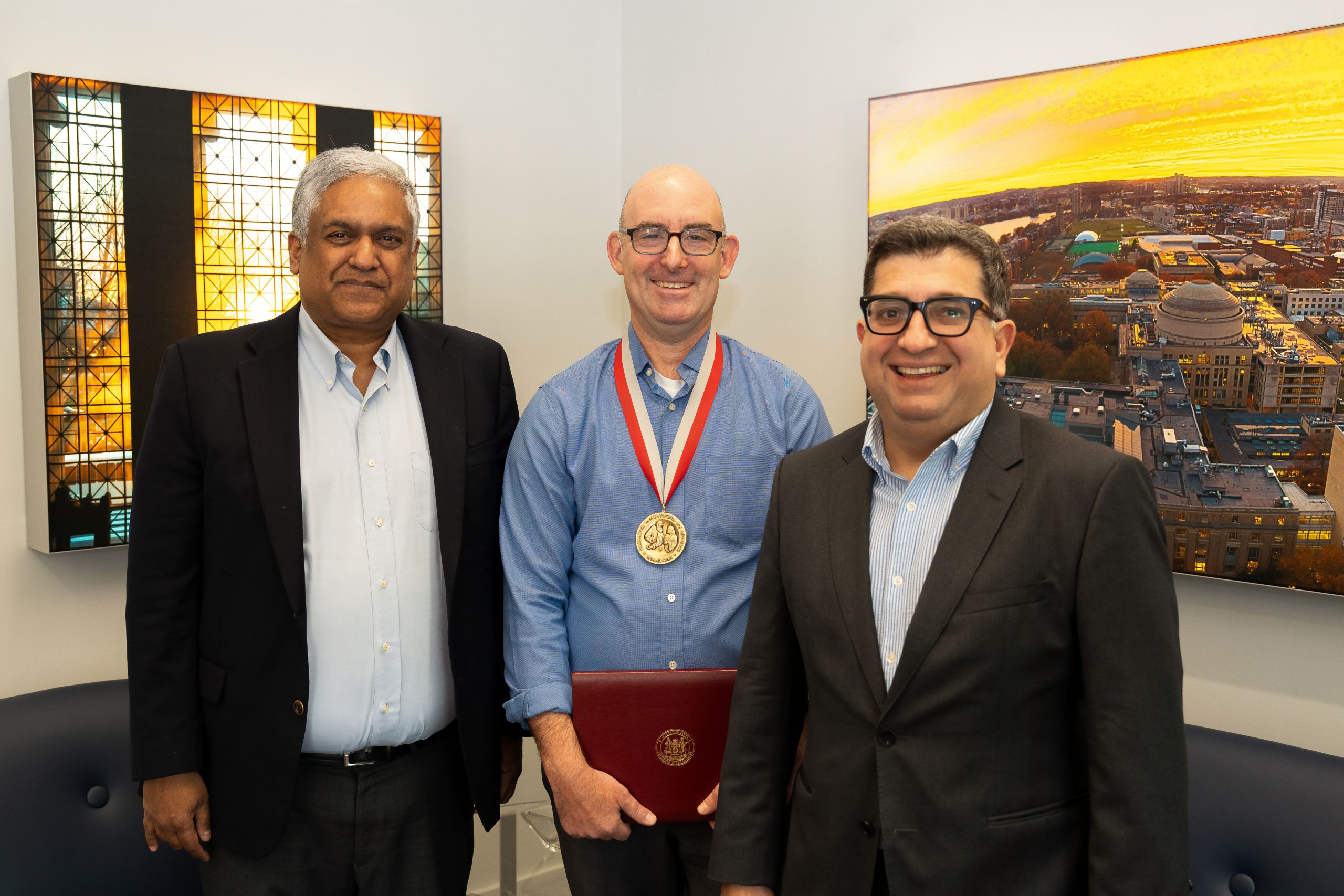Jesse Kroll receives 2025 Capers and Marion McDonald Award
The award is given annually to a faculty member(s) who has demonstrated a lasting commitment to the personal and professional development of others.
June 2, 2025
 Jesse Kroll receives 2025 Capers and Marion McDonald Award
Jesse Kroll receives 2025 Capers and Marion McDonald Award Jesse Kroll, the Peter de Florez (1938) Professor in the Department of Civil and Environmental Engineering, is a recipient of the 2025 Capers and Marion McDonald Award.
Professor Kroll leads the Kroll Group at MIT, whose research focuses on the use and development of new analytical tools to measure and characterize organic compounds in the atmosphere, in order to better constrain their amount, nature, and chemical evolution. His specific research interests lie in the chemical transformations that such organic compounds undergo during their atmospheric lifetimes.
He is also the Mission Co-director of the MIT Climate Project: Restoring the Atmosphere, Protecting the Land and Oceans.
As an advisor to a group of typically 8-10 graduate students and postdocs, Kroll considers his weekly meetings with his mentees to be the most important and fun thing he does in his job.
“These interactions are really the main way I do research,” Kroll said. “We talk through what they've worked on the previous week, look at results if they've gotten any, and brainstorm on next steps. I learn tons from these meetings, and they're invariably the best part of my day.”
Receiving the 2025 McDonald Award is not the first time Kroll has been honored for his dedication to mentoring at MIT. In 2023, he received the Excellence in Postdoctoral Mentoring Award, which “honors and acknowledges principal investigators (PIs) for excellent postdoctoral scholar mentoring and recognizes both the value of quality mentoring and its impact on the career path of postdoctoral scholars.”
During his first year teaching at MIT, Kroll developed significant mentoring skills when he co-taught a class with senior colleague Phil Gschwend.
“He was extremely generous, not only in spending time discussing course material and the logistics of the class, but also in the division of labor,” Kroll said. “He never mentioned this explicitly, but that first term he did way more than I did, presumably because I was brand new and very much in the process of figuring stuff out.”
Kroll considers the experience to be the most important thing he gained from others while learning to become a mentor.
“It made a huge difference for me that first year, and it really stuck with me as a model of how to support early-career researchers.”
Having benefited from exceptional mentorship early in his career, Kroll now embodies those same values as a veteran educator. Since joining the MIT faculty in 2009, he has paid it forward by going above and beyond—not just as a teacher, but as a dedicated mentor and role model to his students and postdocs.